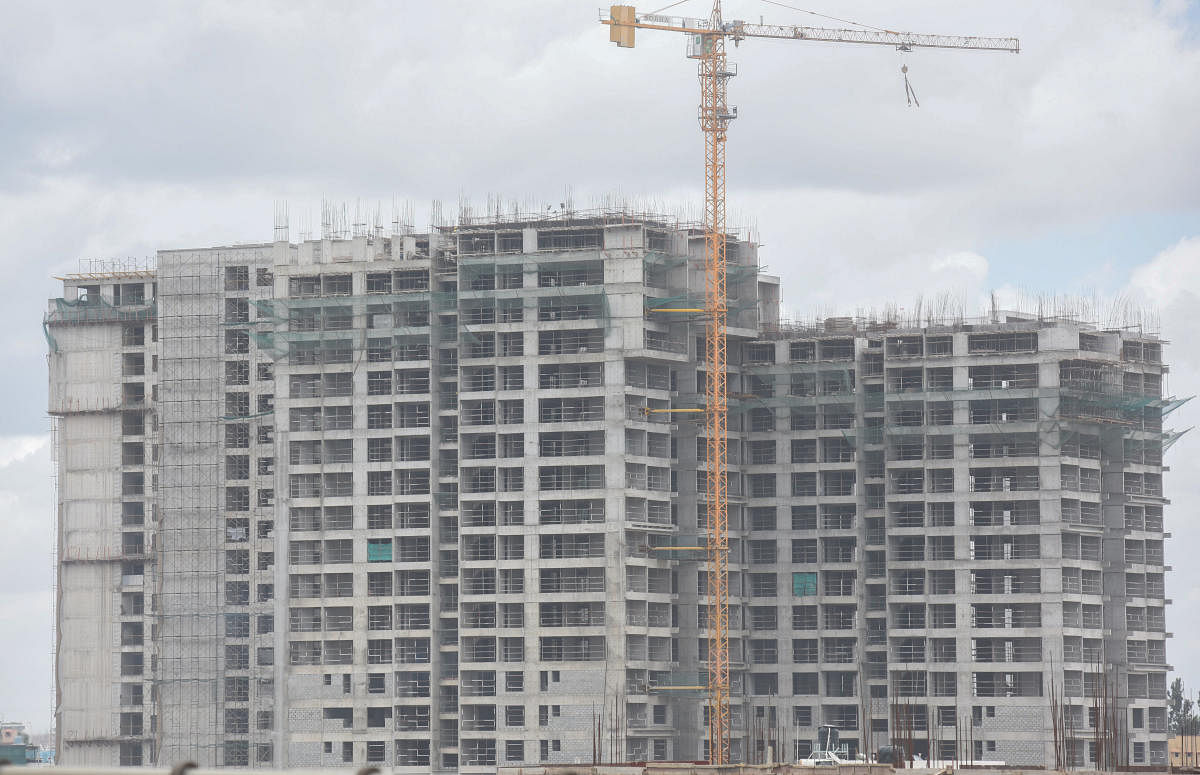

A few months ago, the state government had proposed the unthinkable: imposing a ban on the construction of apartments and high-rises.
The radical idea came as a result of an acute shortage of potable water in the city and a torrent of bad news from Chennai, which was going through an unprecedented water crisis.
Though the proposal remained just that, a proposal, several other factors seem to have done the government’s job.
Construction activities have slumped by over 50% in the last two to three years in the city, with the industry attributing it to demonetisation, GST and rigorous implementation of National Green Tribunal (NGT) rules.
Attesting to the steep fall in construction activities, the number of applications to the Bruhat Bengaluru Mahanagara Palike (BBMP) seeking sanction of building plans for high-rises and apartment buildings has come down by over 50% in the last couple of years.
The BBMP, which is the sanctioning authority for building plans, has received just 30 applications for high-rise apartment construction until August 2019.
According to data accessed from the Additional Director of Town Planning (ADTP), BBMP, the number of existing applications seeking approval for building plans has come down by over 50% compared to the financial years prior to demonetisation, when the BBMP received applications for about 900 projects.
However, the same has reduced to around 450 plus now. But the slump has not affected the construction of individual houses or small-scale construction activities.
Similarly, the number of applications seeking occupancy certificate for completed projects has come down drastically, suggesting that several projects may have been shelved half-way for lack of funds.
Data revealed that construction activities in Bengaluru reached their peak during 2010-11, 2011-12 and 2012-13, with as many as 300 plus applications every year and close to about 100 projects being issued occupancy certificates.
Commenting on the trend, R Prasad, Additional Director, Town Planning, BBMP said the “number of plan sanctions across the city had reduced by over 50 percent in the last three years”.
“This year, until now, 30 applications is an all-time low and alarming. Even though we have still six more months for the completion of 2019, the number may not scale up much. This slump may be attributed to demonetisation, GST, NGT’s guidelines and RERA norms. We hope that the market may gain momentum in the days to come,” he said.
Another senior official said the slump was restricted to only high-rise apartment constructions, leaving small-scale construction unscathed.
“People are afraid to invest as so many reforms are being implemented by the governments. The slump has resulted in the price drop of these unsold units as the industry is pinning hopes on brighter days,” said the official.
Suresh Hari, Chairperson, CREDAI, told DH that the decline in housing construction in and around Bengaluru did not mean there was no demand.
Stating there were “too many hurdles affecting sales”, Hari said, “Demonetisation and GST alone cannot be blamed for the entire trend as there have been multiple issues like Income Tax, RERA norms, NGT rules or Solid Waste Management policies.
The CREDAI chief there have been constant discussions with successive governments to “ease the scenario and make it win-win for all”.